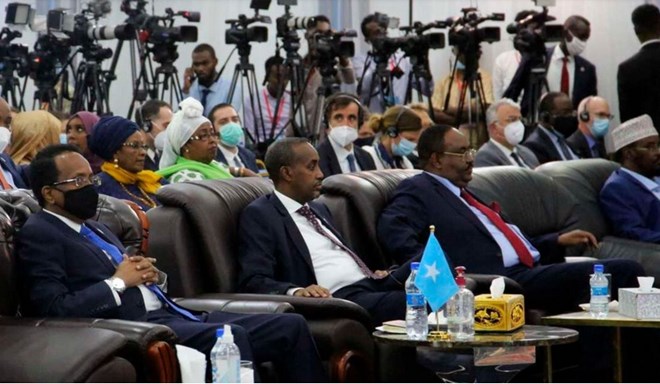
Friday December 3, 2021

When former Speaker of the Somali Lower House Mohamed Osman Jawari protested “plans to rig me out” last week, he sounded like a sore loser.
But after a local poll management committee defied an order from the Federal Electoral Implementation Team (FEIT) to delay the vote in the southwest state, many read irregularities.
In the current arrangement, election for the Lower House – which has 275 members – is expected to end by December 26.
Delegates are selected by local electoral agencies, the federal electoral organisation and clan elders. These delegates from every state then vote for their regions, based on the number of candidates who must be approved by local state administrators.
Jawari’s problems began when he realised he could not defend his seat in Baidoa, the capital of Southwest state.
When his name was dropped, Jawari rushed to Mogadishu and addressed reporters, claiming “rigging and open bias” in the elections.
Acting on calls by the country’s donors to investigate the claims, FEIT recommended that elections in Southwest state be delayed. Local authorities ignored the call.
Later, a group of opposition hopefuls known as the Council of Presidential Candidates (CPC) issued a statement rejecting the election.
The CPC membership includes former presidents Sharif Sheikh Ahmed and Hassan Sheikh Mohamoud. It also has ex-Prime Minister Hassan Ali Khaire.
Legislative elections
It labelled the process of the clan-based legislative elections “seat grabbing at national level”.
“The elections are being processed in an imperfect way. This can lead to instability and insecurity,” the CPC declaration read by former Information Minister Dahir Mohamud Gelle stated.
The coalition issued a seven-point statement showing “how badly the election is being conducted”.
It cited the election of 54 senators to the Upper House and the 275 Lower House lawmakers.
“The role of elders to choose delegates has been ignored,” the statement said.
It added that no delegates have been properly selected, adequately registered or verified by FEIT.
The grouping said civil servants and armed forces personnel do not represent clans but have been chosen as delegates.
“Some MPs have been barred from seeking re-election while new people who do not meet the set criteria have been registered,” the CPC said.
It said state and federal electoral teams have lost credibility.
“The local electoral implementation teams get orders from state presidents while FEIT is loyal to the leaders of the Federal Government,” the statement said.
The group said there is no oversight on the vote, adding that it would not remain quiet.